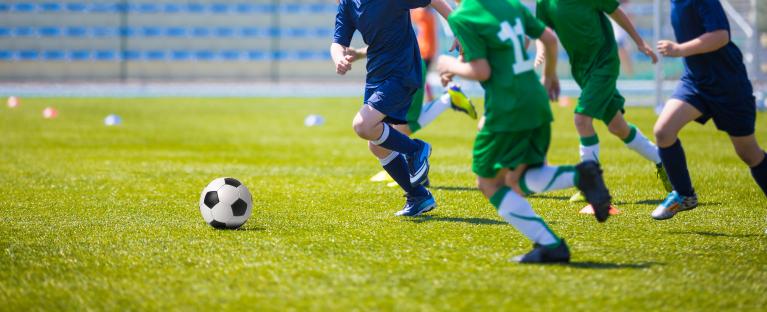
Our sports medicine team provides diagnostic concussion evaluations and concussion management services along with ongoing education and community service. We strive to raise awareness and promote education about proper concussion management with athletes, parents, coaches, area schools and sports teams.
What Is a Concussion?
- A concussion is a brain injury.
- Concussions are caused by a bump or blow to the head. Even a “ding,” “getting your bell rung”, or what seems to be a mild bump or blow to the head can be serious.
- You can’t see a concussion.
- Signs and symptoms of concussion can show up right after the injury or may not appear or be noticed until days or weeks after the injury. If you experience any symptoms of a concussion, seek medical attention right away.
Common Signs & Symptoms of a Concussion:
- Headache or “pressure” in head
- Nausea or vomiting
- Balance problems or dizziness
- Double or blurry vision
- Bothered by light
- Bothered by noise
- Feeling sluggish, hazy, foggy or groggy
- Difficulty paying attention
- Memory problems
- Confusion
- Do not “feel right”
What Can Be Done to Help Reduce My Risk of a Concussion?
- Follow your coach’s rules for safety and the rules of the sport
- Practice good sportsmanship at all times
- Use the proper sports equipment, including personal protective equipment (such as helmets, padding, shin guards, and eye and mouth guards). In order for equipment to protect you, it must be:
- The right equipment for the game, position, or activity
- Worn correctly and fit well
- Used every time you play
If You Suspect a Possible Head Injury, Take These Steps:
- Seek medical attention by a physician trained in concussion management or an athletic trainer. A health care professional will be able to decide how serious the concussion is and when it is safe to return to sports.
- Remove yourself from ALL physical activity. Concussions take time to heal. Don’t return to play until a health care professional says it’s okay. Those who return to play too soon — while the brain is still healing — risk a greater chance of having a second concussion. Second or later concussions can be very serious. They can cause permanent brain damage, affecting you for a lifetime.
- Tell your coach about ANY recent concussion. Coaches won’t know about a recent concussion in another sport or activity unless you tell them.
ImPACT Testing
Sports concussions are an elusive neurological disorder that are difficult to detect. Common tests, such as a neurological examination, EEG, CT, or MRI of the brain, often miss detecting a concussion. Sophisticated computerized testing specifically designed for detecting the effects of sports concussion is considered the most sensitive and reliable testing to diagnose concussion and determining when an athlete has recovered from the concussion and can return to play.
The Sports Concussion Clinic utilizes proven, state-of-the-art computer technology called ImPACT to make a more precise diagnosis. This software program was developed by specialists at the University of Pittsburgh and Henry Ford Health System to detect the presence of sports concussions.
Patient Consultation
Consultations are available Monday through Friday, 8:00 a.m. – 5:00 p.m.
Prior to a consultation, new patients will be asked to complete forms, which include medical history, demographic, and insurance information. This information, along with any current diagnostic imaging (X-ray, CT, MRI), will be utilized to help in your diagnosis and treatment plan.